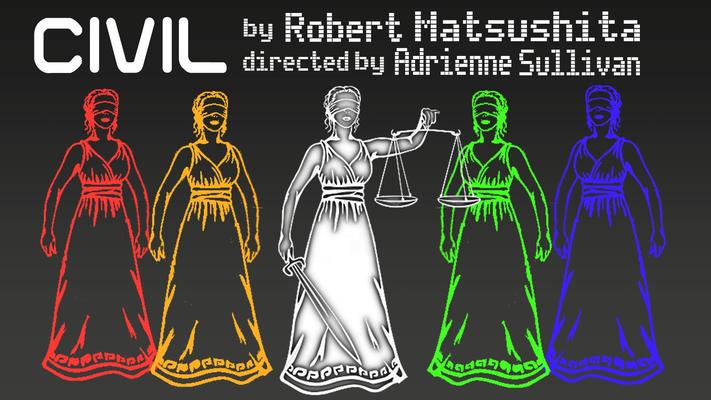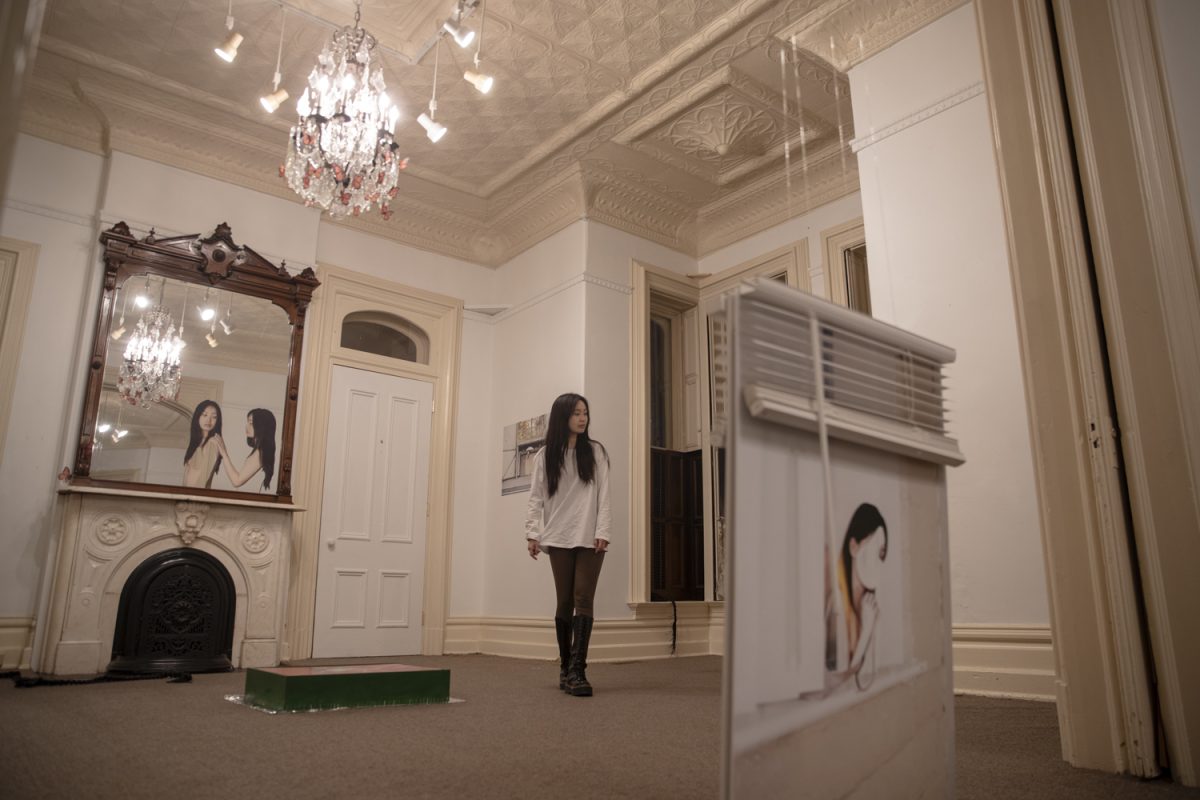The play Civil will be staged at Public Space One, in which the audience decides the verdicts of two trials.
By Hannah Crooks
[email protected]
It is not often that audience members have the opportunity to choose how a play ends. On Friday and Saturday at Public Space One, 120 N. Dubuque St., the play Civil, written by Robert Matsushita, will allow the audience to act as the jury and decide the verdicts of two civil-court cases.
The play takes place in a futuristic, dystopian society with each act following a separate court case. The characters, who go by the names of colors, are actually constructs of the jury’s minds. The goal is to keep the trials as neutral as possible, so jurors cannot know who is on trial.
“In the future, trials are only allowed to take place in the minds of the jurors,” actor Logan Natvig said. “It’s a bit like a shared dream of all of the jurors as they watch the trial take place. The actors all represent virtual constructs that play out the characters in the real trial.”
Natvig plays a character who is unique from the others: his character’s name is the Cursor.
“He is sort of the virtual assistant for the trial,” Natvig said. “Sort of like a Siri for the trial. I tell the jurors what’s going on. I also take the roles of the lawyers and the judge, so I’m the one who’s asking the questions of the witnesses.”
During the first act, the trial involves a custody battle over an embryo. Actor Caleb Borden plays a character called Red.
“Red and Green had a child when they were in high school and … they both didn’t want to claim the child at the time, so it’s held in stasis as an embryo,” Borden said. “Basically, Red is the character who has now moved on, and he has three kids of his own with another character named Orange.”
Because little personal information is given about each character, the actors were forced to examine their roles extremely closely. Actor Serena Collins plays Orange, and she relates to her character’s drive and determination to do what she perceives as the right thing.
“There are definitely drives that her actions come from that I can relate to,” Collins said. “She wants this baby because she thinks she is the right person for this child … The first Orange really believes this is the best thing, and she is willing to do whatever it takes to make that happen.”
The characters in the second act have the same names but play new roles. Orange is a convicted murderer arguing for her right to live vicariously through something called a hypercorporeal unit.
“People in the future will go in, and they’ll get all of their thoughts, and personalities, and memories downloaded, and then if they die, that [unit] will become activated, and it will look like them, have all of their personality, their thoughts, and feelings,” Borden said. “So in a way, people die, but they never really die in the future. So the second trial is all about, should murderers be allowed to do this?”
Civil raises many questions of moral opinion for not only the audience members as they vote on a verdict but also for the cast of the play.
“The most rewarding part of working on the play has been working with a great cast,” Natvig said. “We’ve had a lot of discussions about what this play means, about what it means for our future, the world it created, and the implications that it has.”
When: 7:30 p.m. Friday-Saturday
Where: Public Space One, 120 N. Dubuque Cost: $1-$13










